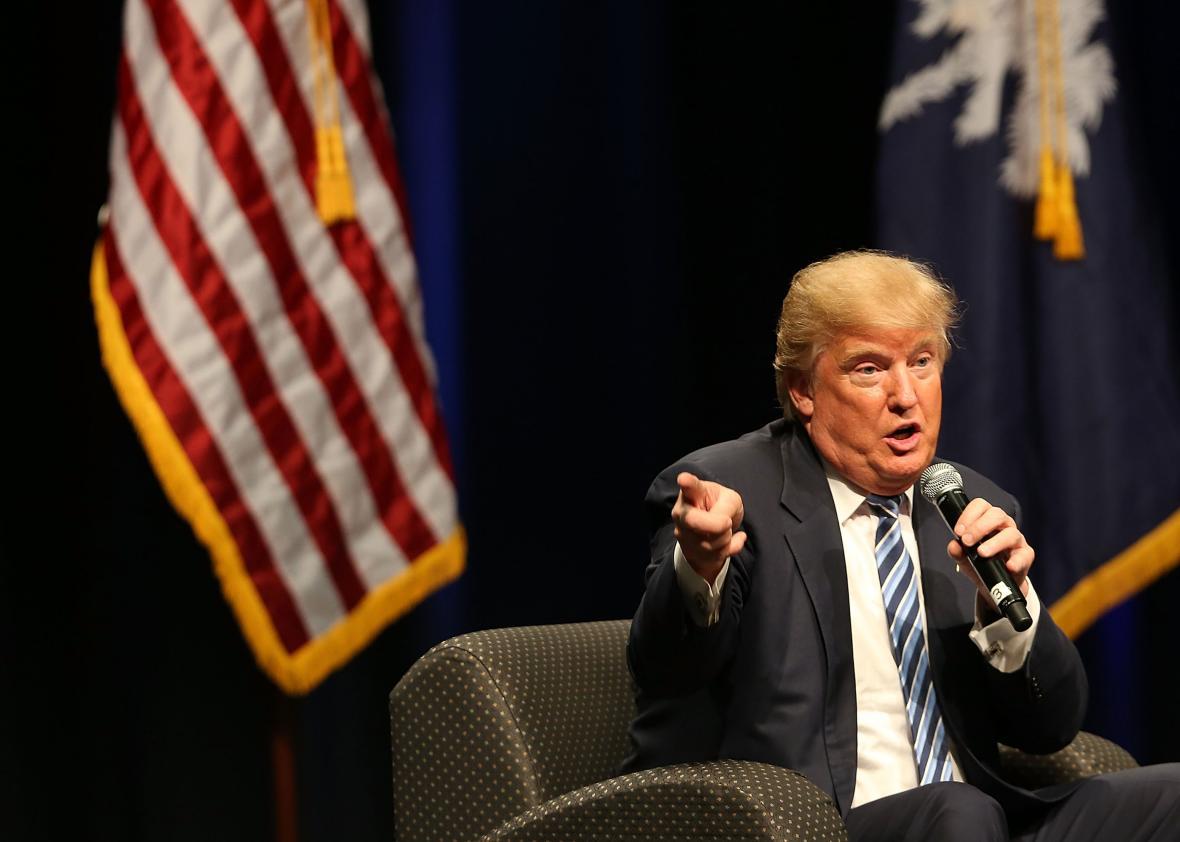This post originally appeared on Language Log.
After Pope Francis suggested that Donald Trump’s plan to build a wall on the U.S.-Mexican border makes him not-so-Christian, Trump fired back with a written statement that begins with a remarkable pile-up of conditionals:
If and when the Vatican is attacked by ISIS, which as everyone knows is ISIS’s ultimate trophy, I can promise you that the Pope would have only wished and prayed that Donald Trump would have been President because this would not have happened. ISIS would have been eradicated unlike what is happening now with our all talk, no action politicians.
All of those would haves! On Twitter, @vykromond asks if Language Loggers have any insights into “the possibly unprecedented ‘quadruple conditional’ of the first sentence.” Here’s my tentative analysis.
Broadly speaking, we’re dealing with the “future conditional” here. As a predictive conditional sentence, Trump’s opening line uses the so-called first conditional pattern, expressing the condition with a present-tense verb (is attacked) in the antecedent clause. But in that pattern, the result of the condition is typically expressed in the consequent clause with a future construction using will. In this case, we might also consider the future perfect will have, because the wishing and praying of the Pope will have already happened by the time the condition (ISIS attacking the Vatican) is met. And we might expect a simple past (Trump was President) or past perfect (Trump had been president) to express what the Pope will have wished/prayed for. So:
Antecedent clause: If and when the Vatican is attacked by ISIS…
Consequent clause: the Pope will have wished and prayed that Trump was (or had been) President…
But Trump instead uses would have for both verbs there, along with the more typical would have in the counterfactual “because this would not have happened.” I don’t think this is so particular to Trump, actually—I’d call it part of a more general extension of would have, especially in conversational English, to cover all sorts of conditional constructions that traditionally might have involved subjunctive forms. (There was some discussion of this trend in an ADS-L thread in 2013, with commentary from Jonathan Lighter, Larry Horn, and Arnold Zwicky.) On the New Yorker’s Page Turner blog, Andrew Boynton gives Trump’s statement a thorough copy-editing. In the edited version, Trump’s first sentence becomes:
Should the Islamic State ever attack the Vatican, which, as everyone knows, is Isis’s ultimate trophy, the Pope will wish that Donald Trump had been President, because such an attack would not have happened.
That’s close to what I was thinking, except Boynton uses the future will wish instead of the future perfect will have wished. Beyond the peculiarities of the Trumpian future conditional, the opening sentence is striking in other ways. To follow its logic, the sentence requires imagining two potential futures:
1. A future in which Trump does not become president, ISIS attacks the Vatican, and the Pope wishes Trump had in fact become President; and
2. A future in which Trump becomes president, the Vatican is not attacked, and then the Pope needn’t have wished for anything.
Not only that, the Pope in Future No. 1 has to imagine what it would be like to be the Pope in Future No. 2! Even more weirdly, by introducing the antecedent clause with if and when, Trump makes it sound like Future No. 1 is assured. So is he in fact predicting his own non-election and an ISIS attack on the Vatican? Seems unlikely. I think Trump’s if and when isn’t supposed to set up all of Future No. 1 as a fait accompli but is instead intended to suggest that the bad stuff in Future No. 1 (ISIS attacks the Vatican, the Pope is regretful) would follow as a natural and necessary consequence of the temporal first step in that future course (Trump isn’t elected).
With these battling future visions, perhaps the sentence is best thought of as a kind of speculative fiction that puts you in the possible world where Trump isn’t elected and then lets you go back and change it—something like killing Baby Hitler. But I’m going to give up now, because this is making my head hurt almost as much as when I watched Inception.
